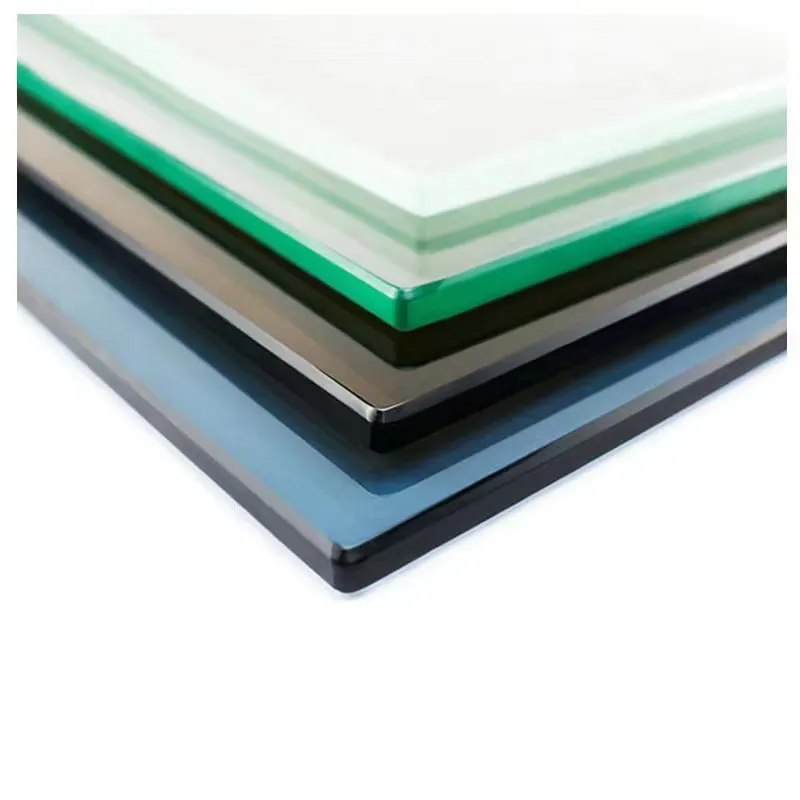Exploring the Elegance of Low Iron Frosted Glass
In the world of interior design and architecture, glass has become a staple element, celebrated for its ability to merge aesthetics with functionality. Among the various types of glass available, low iron frosted glass stands out for its remarkable clarity and subtle texture, offering both beauty and versatility. This article delves into the characteristics, applications, and benefits of low iron frosted glass, making it a favored choice among designers and architects alike.
Low iron glass is a special category of glass that contains a minimal amount of iron oxide, resulting in a much clearer and more transparent material. The absence of iron oxide reduces the green tint that is often found in standard glass, allowing light to pass through more freely and providing a true representation of colors. When this glass is frosted, the result is a soft, diffused appearance that enhances privacy without sacrificing natural light.
One of the primary advantages of low iron frosted glass is its ability to create a serene ambiance in various environments. It diffuses light in a way that softens bright sunlight, reducing glare and creating a tranquil atmosphere. This quality makes it an ideal choice for spaces where comfort is essential, such as homes, offices, and wellness centers. The gentle illumination provided by frosted glass can elevate the mood in a room, making it feel more inviting and relaxing.
low iron frosted glass
The applications of low iron frosted glass are vast and varied. In residential settings, it can be used in sliding doors, shower enclosures, and partition walls to provide privacy while maintaining an airy feel. In commercial spaces, it serves as an elegant solution for conference rooms, storefronts, and receptions, where it can be used to brand the company while keeping an open and welcoming design. Architects and designers often utilize low iron frosted glass in facades and windows, enhancing the exterior of buildings by allowing natural light to penetrate deep into the interiors.
Besides its aesthetic appeal, low iron frosted glass offers practical benefits, making it a smart choice for modern architecture. The frosted surface is more resistant to fingerprints and smudges compared to clear glass, simplifying maintenance and ensuring a clean look over time. Additionally, it provides a level of UV protection, helping to reduce the fading of interior furnishings and artworks by blocking harmful rays without sacrificing daylight.
Moreover, low iron frosted glass is environmentally friendly. Its production process is designed to be low-impact, and because it allows for better light transmission, it can help reduce reliance on artificial lighting. By incorporating this type of glass into buildings, designers can contribute to energy efficiency and sustainability—a key consideration in contemporary architecture.
In conclusion, low iron frosted glass is an exceptional material that combines elegance with utility. Its clarity, aesthetic appeal, and versatility make it a preferred choice for a range of design applications. Whether used in residential or commercial settings, it enhances spaces by allowing natural light to flow while ensuring privacy and comfort. As we move towards a future that embraces sustainability and design innovation, low iron frosted glass will undoubtedly continue to play a significant role in shaping the environments we inhabit. The glow and beauty it brings to spaces ensure that it remains a timeless choice for architects and designers seeking to create harmonious and inviting atmospheres.
 Afrikaans
Afrikaans  Albanian
Albanian  Amharic
Amharic  Arabic
Arabic  Armenian
Armenian  Azerbaijani
Azerbaijani  Basque
Basque  Belarusian
Belarusian  Bengali
Bengali  Bosnian
Bosnian  Bulgarian
Bulgarian  Catalan
Catalan  Cebuano
Cebuano  Corsican
Corsican  Croatian
Croatian  Czech
Czech  Danish
Danish  Dutch
Dutch  English
English  Esperanto
Esperanto  Estonian
Estonian  Finnish
Finnish  French
French  Frisian
Frisian  Galician
Galician  Georgian
Georgian  German
German  Greek
Greek  Gujarati
Gujarati  Haitian Creole
Haitian Creole  hausa
hausa  hawaiian
hawaiian  Hebrew
Hebrew  Hindi
Hindi  Miao
Miao  Hungarian
Hungarian  Icelandic
Icelandic  igbo
igbo  Indonesian
Indonesian  irish
irish  Italian
Italian  Japanese
Japanese  Javanese
Javanese  Kannada
Kannada  kazakh
kazakh  Khmer
Khmer  Rwandese
Rwandese  Korean
Korean  Kurdish
Kurdish  Kyrgyz
Kyrgyz  Lao
Lao  Latin
Latin  Latvian
Latvian  Lithuanian
Lithuanian  Luxembourgish
Luxembourgish  Macedonian
Macedonian  Malgashi
Malgashi  Malay
Malay  Malayalam
Malayalam  Maltese
Maltese  Maori
Maori  Marathi
Marathi  Mongolian
Mongolian  Myanmar
Myanmar  Nepali
Nepali  Norwegian
Norwegian  Norwegian
Norwegian  Occitan
Occitan  Pashto
Pashto  Persian
Persian  Polish
Polish  Portuguese
Portuguese  Punjabi
Punjabi  Romanian
Romanian  Russian
Russian  Samoan
Samoan  Scottish Gaelic
Scottish Gaelic  Serbian
Serbian  Sesotho
Sesotho  Shona
Shona  Sindhi
Sindhi  Sinhala
Sinhala  Slovak
Slovak  Slovenian
Slovenian  Somali
Somali  Spanish
Spanish  Sundanese
Sundanese  Swahili
Swahili  Swedish
Swedish  Tagalog
Tagalog  Tajik
Tajik  Tamil
Tamil  Tatar
Tatar  Telugu
Telugu  Thai
Thai  Turkish
Turkish  Turkmen
Turkmen  Ukrainian
Ukrainian  Urdu
Urdu  Uighur
Uighur  Uzbek
Uzbek  Vietnamese
Vietnamese  Welsh
Welsh  Bantu
Bantu  Yiddish
Yiddish  Yoruba
Yoruba  Zulu
Zulu 

